
Last week, the tragic death of Don Cornelius came as a sudden shock to a lot of people... myself duly included. It delayed the plan I had to blog about the importance of us all observing this month of February in remembrance of Black History. Today, with the dawning of a new week will mark the first in a series of entries posted in celebration of the history, accomplishments, and triumphs of Black American culture.
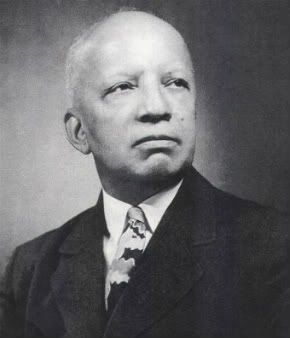
Dr. Carter G. Woodson…
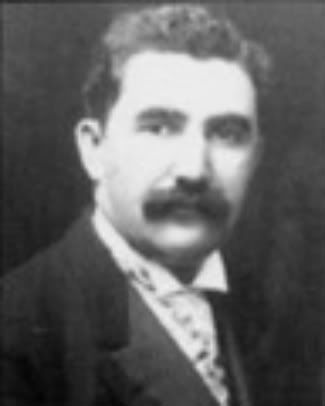
and Rev. Jesse E. Moorland (above) wanted to highlight the often overlooked role black people played in both American and world history. To accomplish this goal, they co-founded the Association for the Study of Negro Life and History.
The pair hoped that their various projects would help instill their race with a sense of pride.
Woodson later founded “Negro History and Literature Week” in 1920, while he was a member of the Omega Psi Phi fraternity at Harvard University. Woodson later became the second black person to receive a degree from Harvard.
He chose February as the month of celebration to honor Abraham Lincoln…
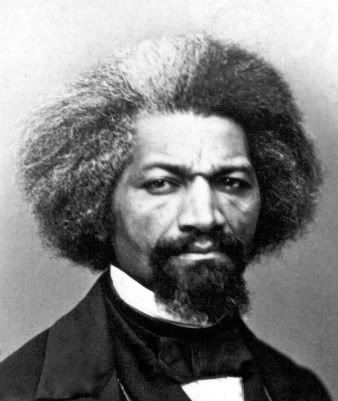
and leading abolitionist Frederick Douglass.
Black History Month is now widely recognized and celebrated throughout the month of February.
The following are but a few interesting facts about a handful of influential African Americans:
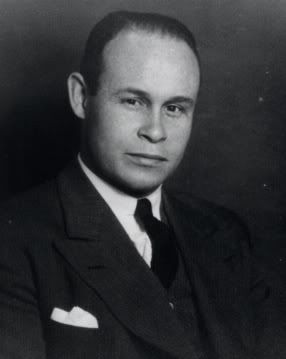
African-American surgeon Charles R. Drew is often credited with the invention of the first large-scale blood bank.

African-American mechanical engineer, David Crosthwait, Jr. created the heating systems for the Rockefeller Center and New York’s Radio City Music Hall.
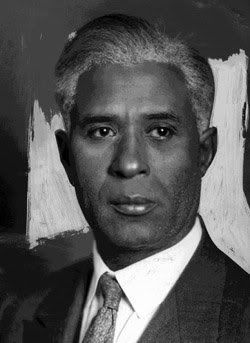
African-American inventor Garrett Augustus Morgan created the gas mask—then became renowned for using his mask to save workers trapped in a toxic fume-filled tunnel. Even more famously, Morgan created the first patented modern day traffic light in 1923.
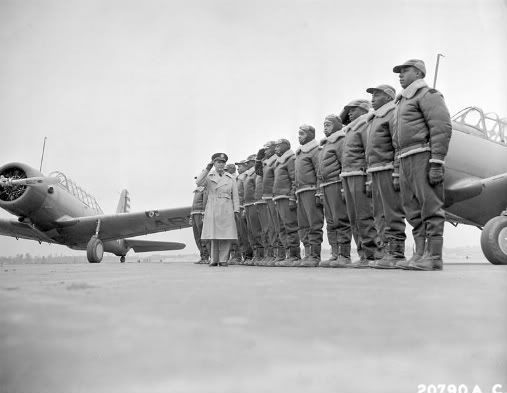
During WWII, segregated units, such as the Tuskegee Airmen and the U.S. 761st Tank Battalion proved their value in combat. Approximately 75 percent of the soldiers who served in the European theater as truckers for the Red Ball Express and kept Allied supply lines open were African American. A total of 708 African Americans were killed in combat during World War II.
The distinguished service of these units was a factor in President Harry S. Truman's order to end discrimination in the Armed Forces in July 1948, with the promulgation of Executive Order 9981. This led in turn to the integration of the Air Force and the other services by the early 1950s
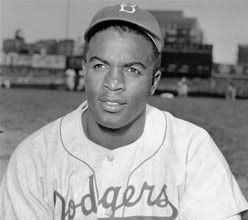
On April 15, 1947, Jackie Robinson broke the baseball color line when he debuted with the Brooklyn Dodgers.. As the first black man to play in the major leagues since the 1880s, he was instrumental in bringing an end to racial segregation in professional baseball, which had relegated black players to the Negro leagues for six decades.
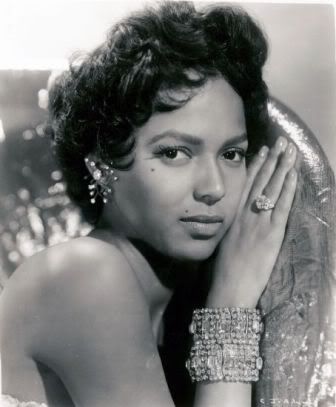
In 1954, Dorothy Dandridge became the first Black woman to be nominated for an Academy Award as Best Actress for her starring role in the film
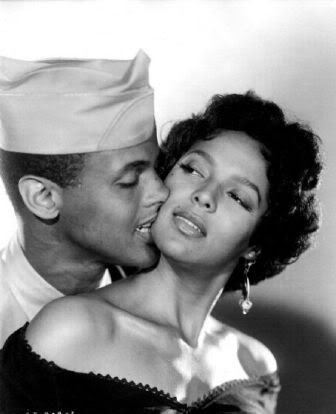
“Carmen Jones” in which she costarred with Harry Belafonte.
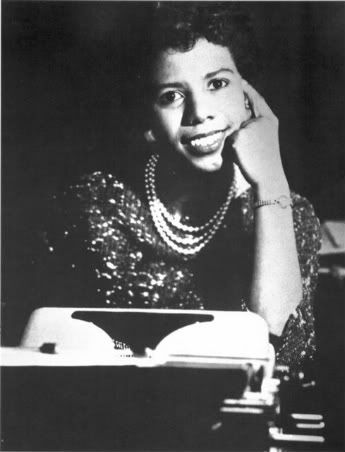
In 1959, playwright Lorraine Hansbury, whose best known work, A Raisin in the Sun (inspired by her family's battle against racial segregation in Chicago) would make history as the first straight (non-musical) Broadway play by an African-American produced and mounted on The Great White Way. It starred Sidney Poitier, Ruby Dee, Claudia McNeal and Diana Sands… each of whom would later reprise their roles in the film of the same name.
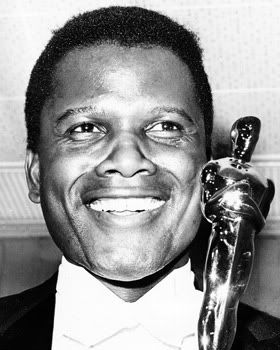
Sidney Poitier was the first male Black actor to be nominated for a competitive Academy Award (for The Defiant Ones, 1958). He was also the first Black actor to win the Academy Award for Best Actor (for Lilies of the Field in 1963).
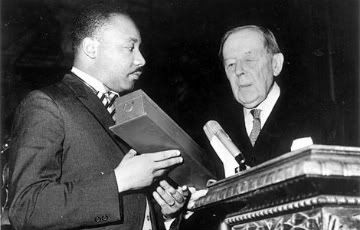
In 1964, The Nobel Peace Prize was awarded to the Rev. Dr. Martin Luther King Jr. At the age of 35, the civil rights leader was the youngest winner of the prize that Dr. Alfred Nobel instituted since the first was awarded in 1901. The prize honors acts "for the furtherance of brotherhood among men and to the abolishment or reduction of standing armies and for the extension of these purposes."
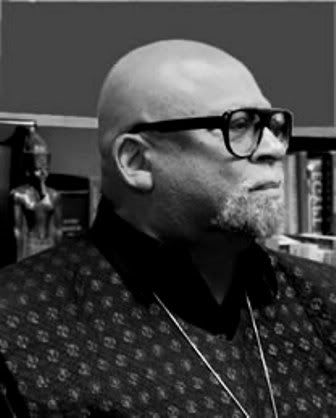
Dr. Maulana Karenga created the African-American holiday, Kwanzaa, in 1966.
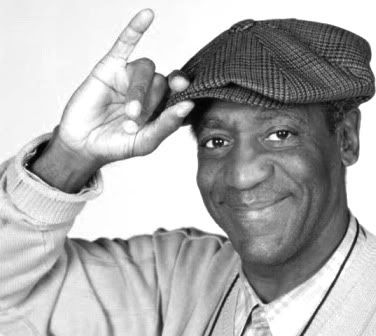
Comedian Bill Cosby’s 1984 sitcom, The Cosby Show, became the highest-ranking sitcom for 5 years in a row. The program aired for eight years.
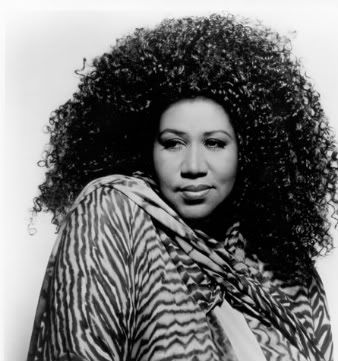
Music legend Aretha Franklin is one of the most honored artists in Grammy Award history, with 20 wins to date.
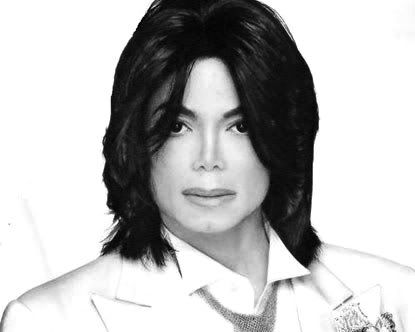
In 1980, singer and performer Michael Jackson secured the highest royalty rate in the music industry—37 percent of the album’s profit.

Tyra Banks was the first African-American woman on the covers of GQ magazine…

and the Sports Illustrated swimsuit issue.

Barack Hussein Obama II, born on August 4, 1961, in Honolulu, Hawaii, a former Illinois State Senator, and on November 4, 2008, he was elected as the first African-American to hold the Office of President of United States of America.
In the course of a century, there can be no denial of the remarkable progress made. And yet, as a people, a culture and as a nation, we've still so far to go.
One Love.
